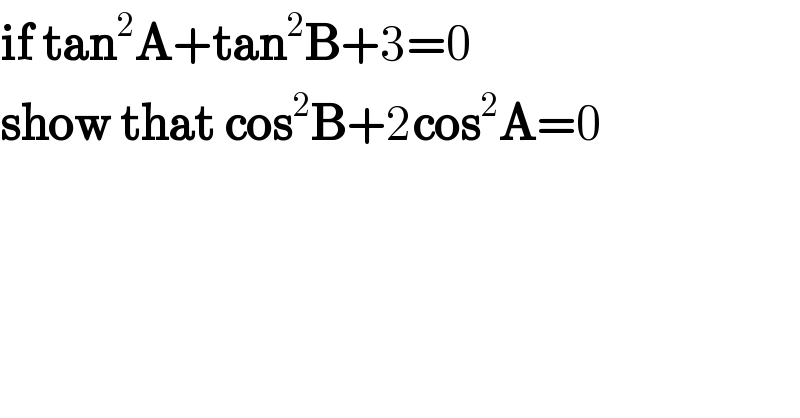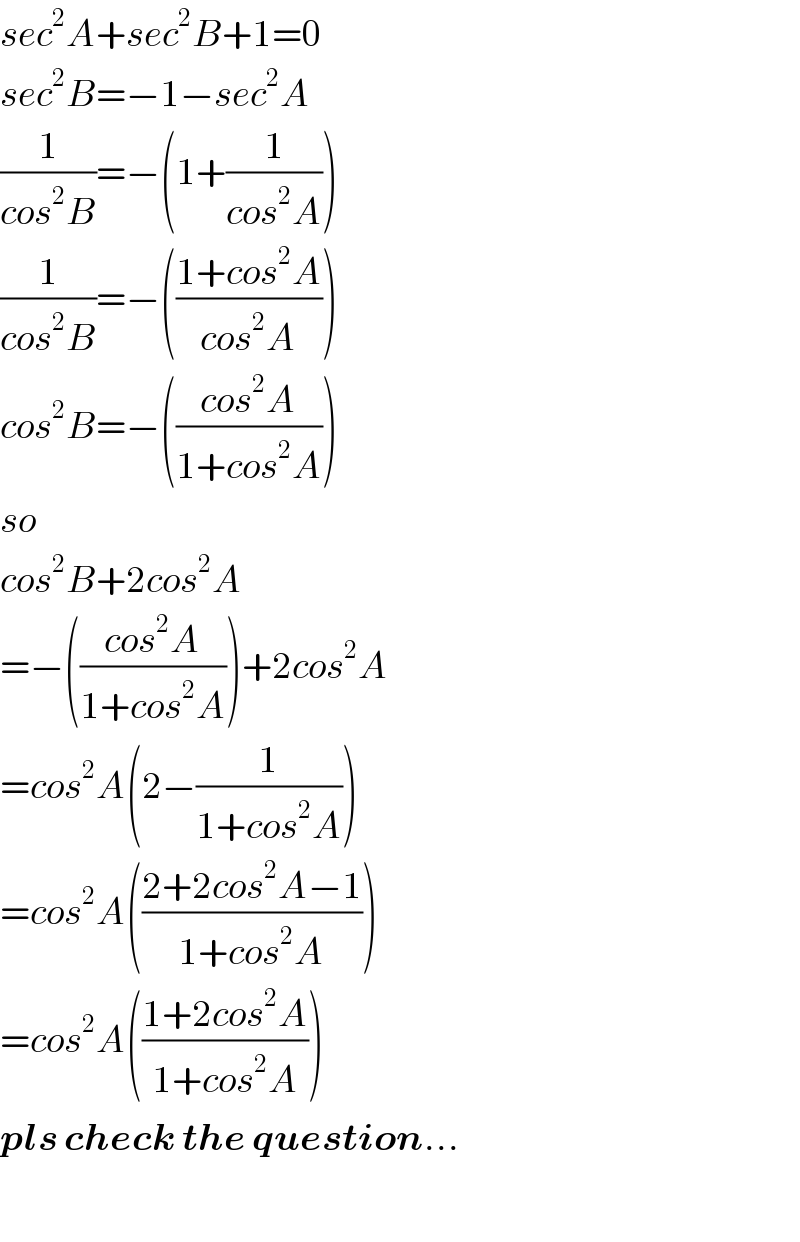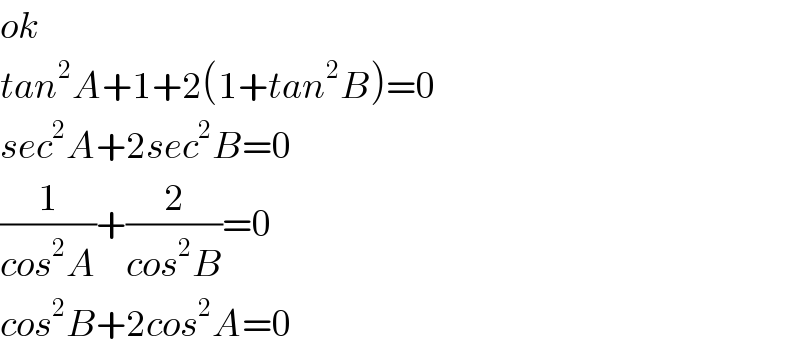
Question and Answers Forum
Question Number 41389 by mondodotto@gmail.com last updated on 06/Aug/18

Commented by tanmay.chaudhury50@gmail.com last updated on 06/Aug/18

Commented by tanmay.chaudhury50@gmail.com last updated on 07/Aug/18

Answered by tanmay.chaudhury50@gmail.com last updated on 07/Aug/18

Commented by mondodotto@gmail.com last updated on 07/Aug/18

Commented by tanmay.chaudhury50@gmail.com last updated on 07/Aug/18

Commented by mondodotto@gmail.com last updated on 07/Aug/18

Commented by tanmay.chaudhury50@gmail.com last updated on 07/Aug/18

